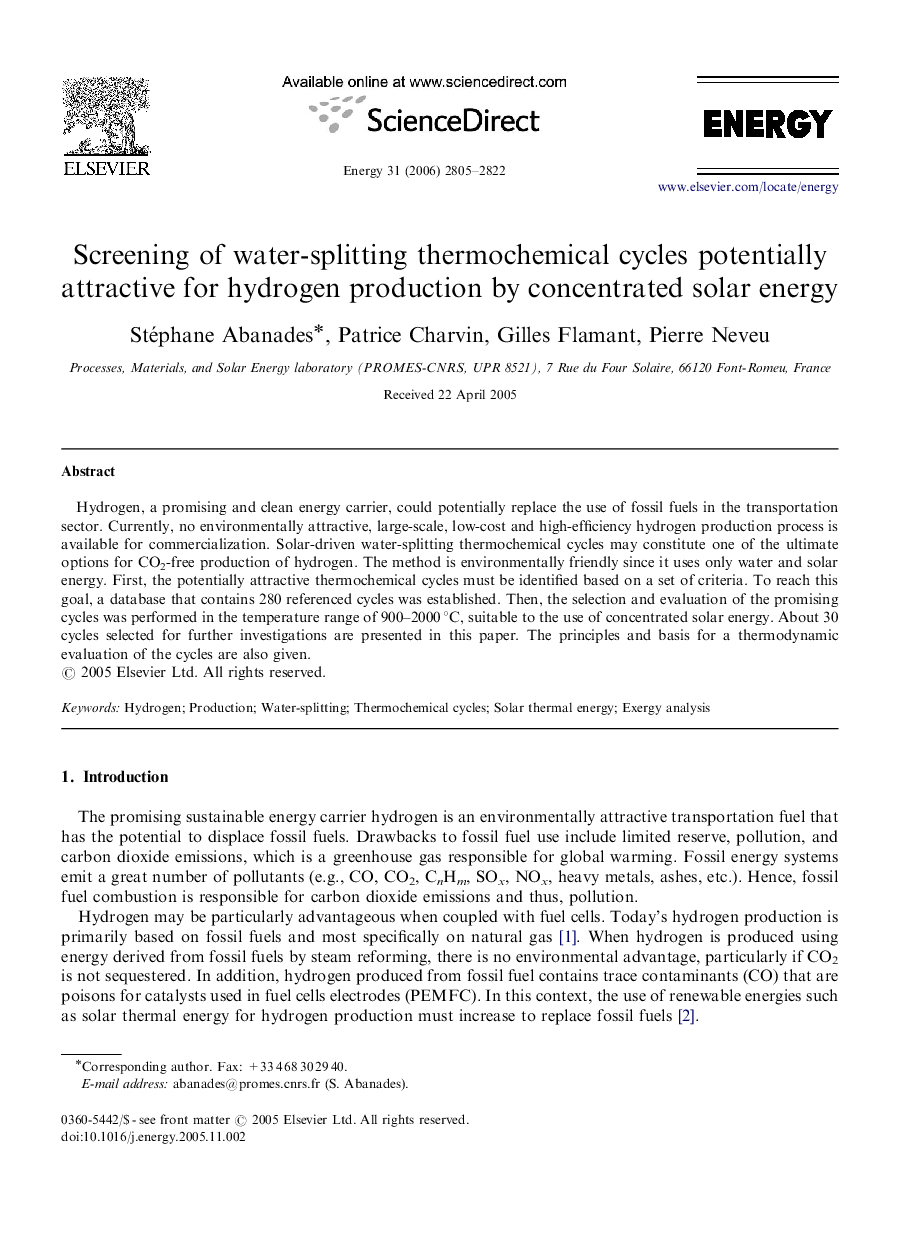| Article ID | Journal | Published Year | Pages | File Type |
|---|---|---|---|---|
| 1736320 | Energy | 2006 | 18 Pages |
Hydrogen, a promising and clean energy carrier, could potentially replace the use of fossil fuels in the transportation sector. Currently, no environmentally attractive, large-scale, low-cost and high-efficiency hydrogen production process is available for commercialization. Solar-driven water-splitting thermochemical cycles may constitute one of the ultimate options for CO2-free production of hydrogen. The method is environmentally friendly since it uses only water and solar energy. First, the potentially attractive thermochemical cycles must be identified based on a set of criteria. To reach this goal, a database that contains 280 referenced cycles was established. Then, the selection and evaluation of the promising cycles was performed in the temperature range of 900–2000 °C, suitable to the use of concentrated solar energy. About 30 cycles selected for further investigations are presented in this paper. The principles and basis for a thermodynamic evaluation of the cycles are also given.
